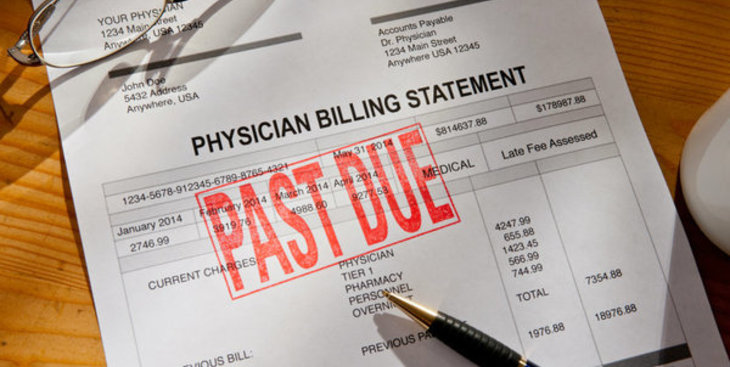 Who's to blame for out-of-network bills? 86 percent of respondents said insurance companies are very or somewhat responsible, compared to 82 percent who said hospitals are. (Photo: Shutterstock)
Who's to blame for out-of-network bills? 86 percent of respondents said insurance companies are very or somewhat responsible, compared to 82 percent who said hospitals are. (Photo: Shutterstock)
Getting a medical bill out of the blue that required payment for a service you thought was covered is something that happens to a lot of people. A new study finds that it occurred to nearly 60 percent of Americans in the past 12 months.
The study of 1,000 adults, by NORC at the University of Chicago, found that 57 percent of respondents said they had received a medical bill that they thought should have been covered by their insurance.
Related: Can apps slay the medical bill dragon?
Of that number, 53 percent said the surprise charges were for physician services, followed by laboratory tests (51 percent), other charges (43 percent), imaging (35 percent) and prescription drugs (29 percent). Twenty percent of the unexpected bills were due to a physician not being part of their insurance network.
NORC analysts note that although price transparency tools are available to consumers to help reduce confusion about these questions, not all insurance enrollees have access to such tools, and those who do may not be using them—either because they don't understand them or are not aware of them.
Caroline Pearson, senior fellow at NORC, said the results show that the health care system isn't doing enough to educate consumers. “”Healthcare executives are focused on empowering consumers and thus far the system is failing,” Pearson said.
“People are definitely confused by their insurance and struggle to understand benefit design, what their deductible is or who is going to be in network,” Pearson said. “The system does not empower patients to understand what costs are coming down the pike. This breeds a lack of trust and real frustration with the system.”
The NORC researchers say that consumers are sometimes told that physicians are part of their network when if fact that is not the case. In addition, industry trends have led to narrower networks of providers, which make surprise bills more likely.
In the survey, consumers were asked which groups are most responsible for surprise medical bills. The study found that 86 percent of respondents said insurance companies are very or somewhat responsible, compared to 82 percent who said hospitals are. Fewer respondents, 71 percent, said that providers were very or somewhat responsible.
Providers and insurers could alleviate these issues by making information more available and easier to use through better tools and more transparency, Pearson said, adding that the industry also needs to better understand why transparency tools are not more widely used.
The problem has been noted by other researchers as well. In a report released earlier this year, the Catalyst for Payment Reform and the Health Care Incentives Improvement Initiative gave 43 states a failing grade for their healthcare price transparency legislation or lack thereof, based on data from 2016.
The NORC analysts say important features for any regulations include: protections to both emergency department and in-network hospital settings, rules that apply to both HMOs and PPOs, a prohibition on balance billing, elimination of consumers' liability, and payment standards or dispute resolution process to mitigate disagreements between providers and insurers.
“The issue is ripe for a policy solution, but most approaches are limited,” Pearson said. “It's hard to figure out the right solution that is fair to everyone. But it strikes me that providers and insurers are each suffering from this so there should be some sort of compromise.
© 2025 ALM Global, LLC, All Rights Reserved. Request academic re-use from www.copyright.com. All other uses, submit a request to [email protected]. For more information visit Asset & Logo Licensing.







